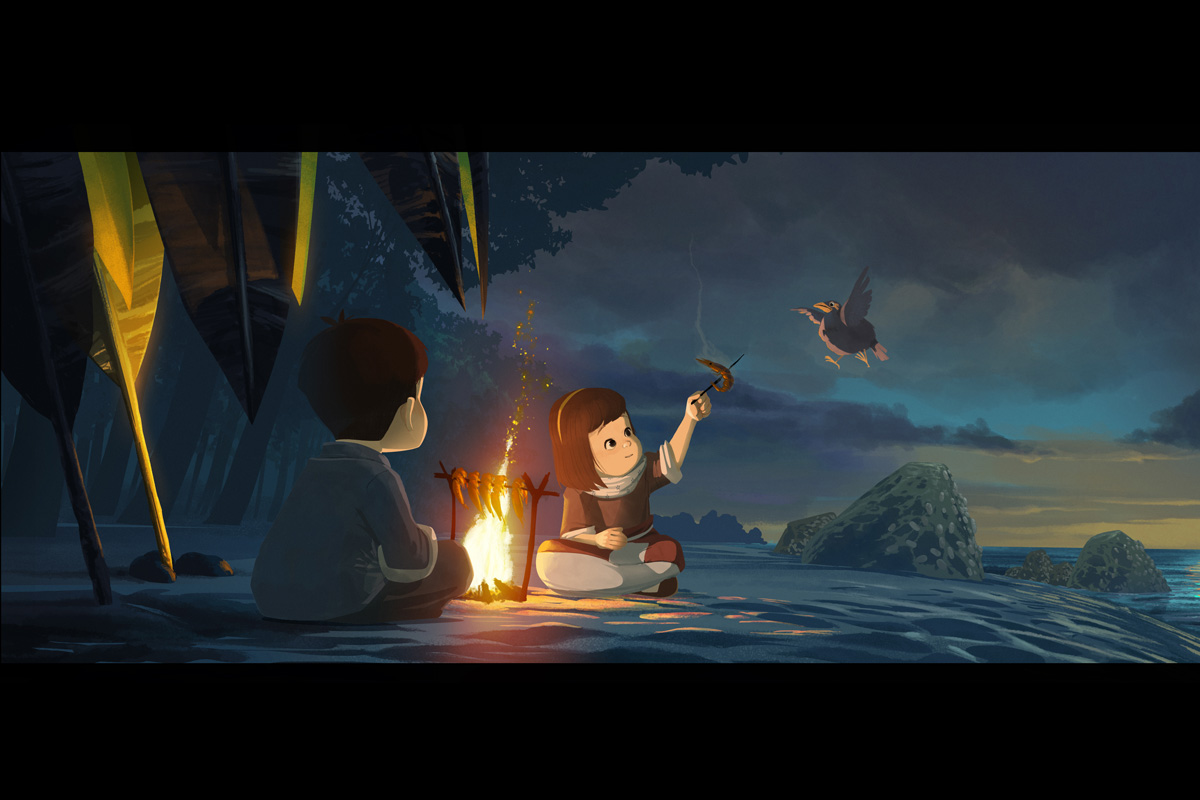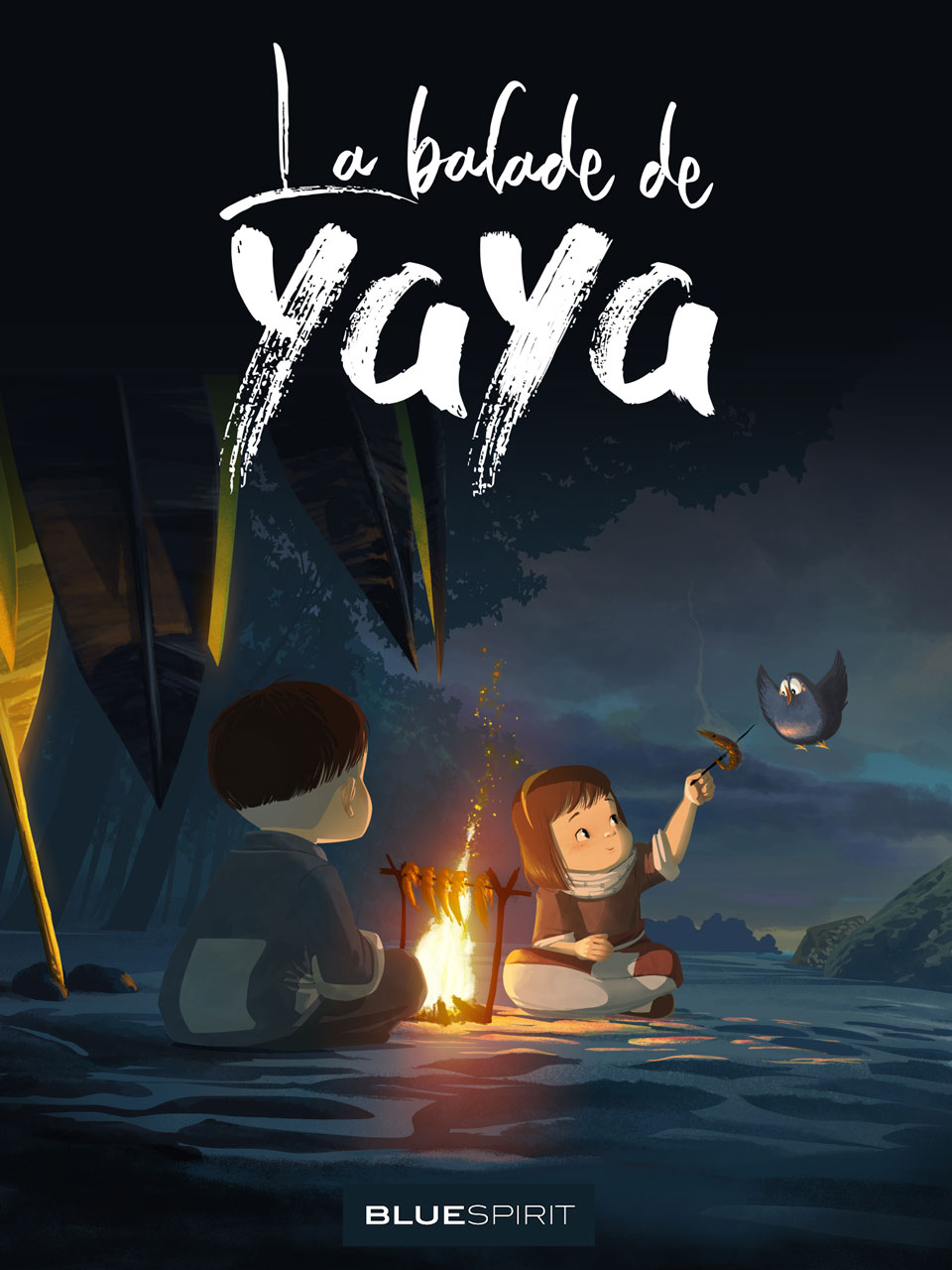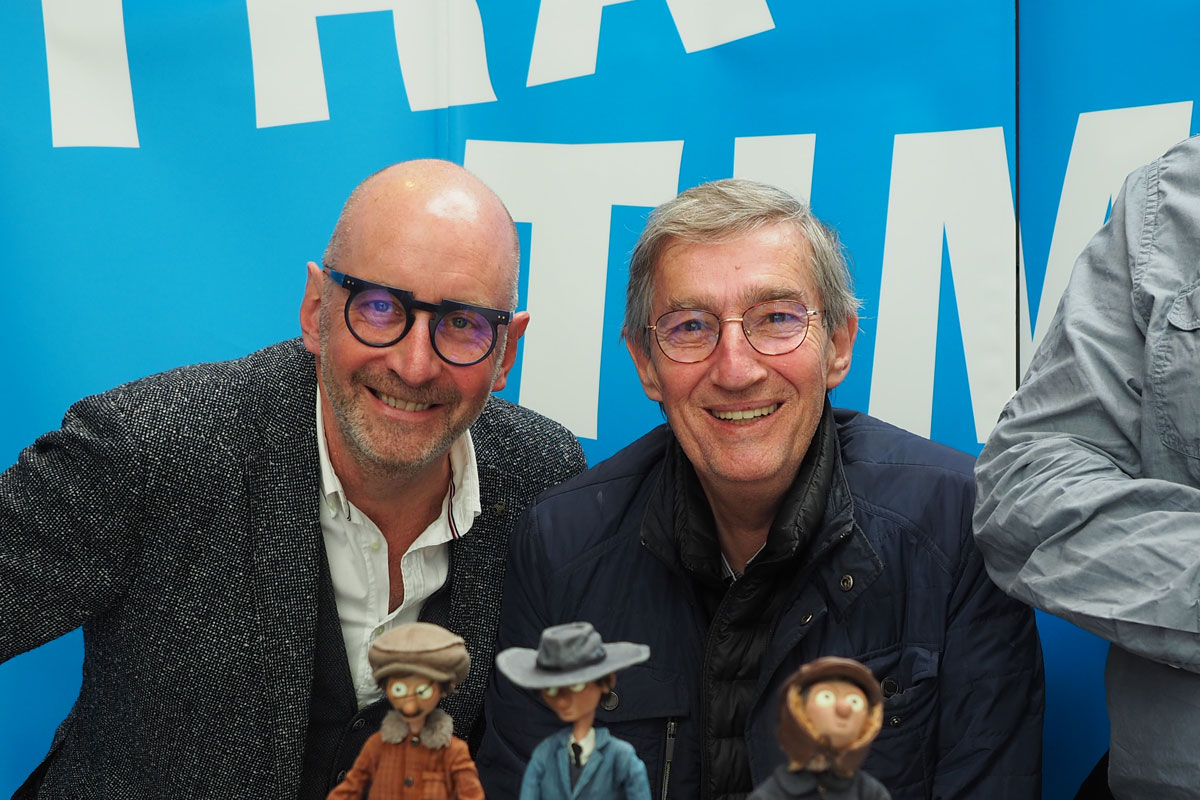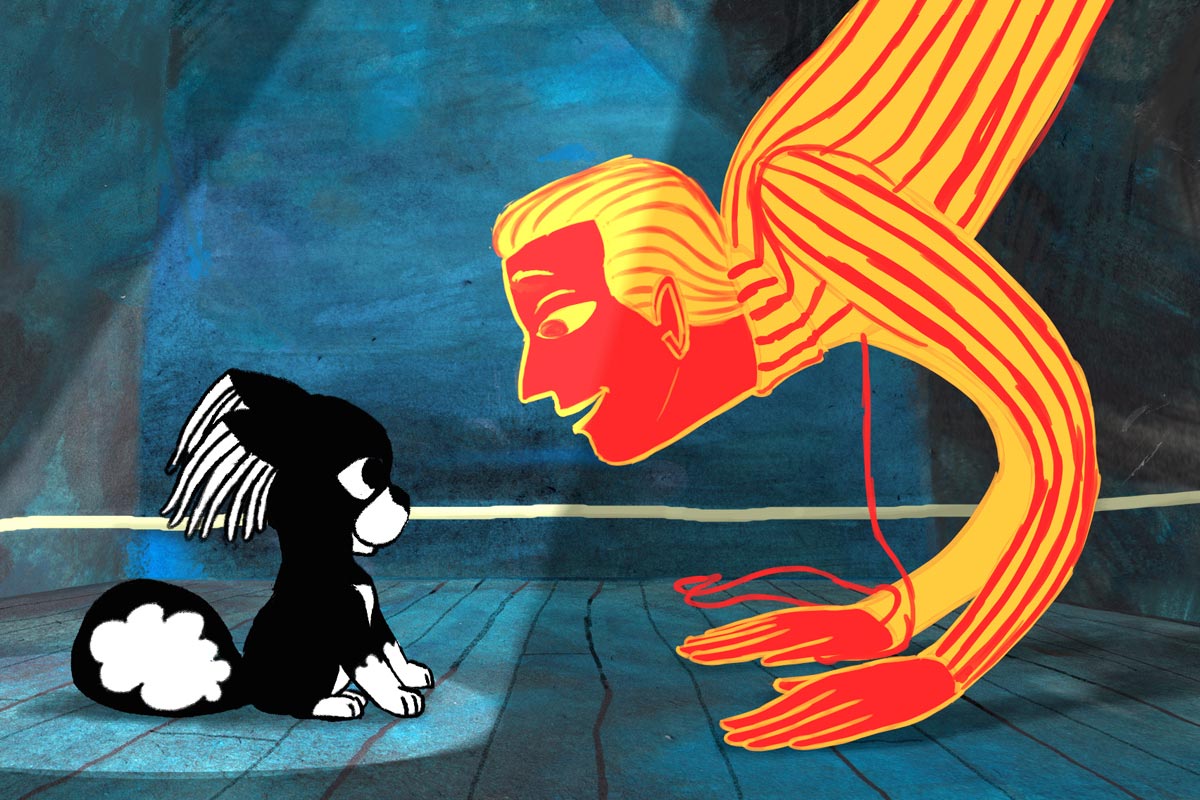The Ballad of YaYa
(Status: in development)
[row][column size='1/4']
[/column]
[column size='3/4']
Synopsis
1937. Yaya, a wealthy 9-year-old Chinese girl raised in the French Concession in Shanghai, loves playing piano, just like her mother. When the Japanese invade China, Yaya, not realizing her Music Academy entrance exam is cancelled, still tries to turn up. Her parents, who have accepted protection from the French Consul and were hoping to board the last boat to Hong Kong, now have to find their daughter in the occupied city. But Yaya, saved from an air raid by Tuduo, a street-smart urchin, believes she’s messed up and that her parents had to leave without her. So begins her long journey to Hong Kong to find them with her new friend Tuduo.
[/column]
[/row]
The Ballad of YaYa
Director: TBC
Author: Patrick Marty, Céline Ronté and Antoine Schoumsky adaptation from The ballad of YaYa written by Patrick Marty, Charlotte Gérard and Jean-Marie Omont, drawn by Golo Zhao
Producer: Armelle Glorennec (Blue Spirit Productions, France)
Target audience: Family
Technique: 2D digital / 3D digital
The Ballad of YaYa is an animated feature film project that has gathered attention from investors the most during Cartoon Movie 2019. It is a coming-of-age tale of a girl, YaYa, who sees and experiences new things through a long, adventurous journey with a boy in China around the WWII era, based on a popular French comic series of the same title. The project is in the stage of developing the final script to move into production. We could hear about the project from Armelle Glorennec, the producer, Sara Wikler, the artistic producer, and Fabien Daphy, the director of the pilot trailer. We would like to share their words and its beautiful trailer and still images.
Interview with Armelle Glorennec, Sara Wikler and Fabien Daphy
Hideki Nagaishi (HN): How popular was the original graphic novel in France? How did the film project based on the graphic novel start?
Sara Wikler: This film project was started by Les Éditions Fei, the publisher of the comic series which is quite popular in France. They pitched the project at Cartoon Movie 2012, 7 years ago. Armelle was very interested in the project.
Armelle Glorennec: I attended Cartoon Movie 2012 and decided to coproduce My Life as a Courgette after I discovered the pitch. I was also seduced by the pitch of The Ballad of YaYa, which was still in concept. I contacted Les Éditions Fei and said to them, “We are very interested in helping you as an animation studio.” I was looking forward to doing something with the project but they took time to decide not to produce and sell it, so I decided to co-produce it at that time.
Two years ago, we decided to buy the project from Les Éditions Fei to become the main producer. We then began to rewrite their first script, which wasn’t completed, with one of the original authors of the comic series, Patrick Marty. That was the story.
HN: What part of the original comic attracted you the most?
Sara Wikler: Eric Jacquot, who is the CEO of Blue Spirit Productions, was very attracted to the original story that was based in a historical moment. Kids themselves would not willingly enter conflict. But if a conflict were to start, it would affect their lives and they would have to be strong and understand what could be done for the difficulties. The original story communicates that subject to the young audience.
Armelle Glorennec: This is a movie about a very strong friendship, a real adventure in a serious context but where we have also developed humour and a touch of magic. The two main characters are moving and confronted to their complexity. It is for us the occasion to open our productions to a larger audience, maintaining our requirement on both the form and the meaning of the story.
HN: What kind of experience or message do you want to deliver through this film to the audience?
Sara Wikler: The main message is that you can share things with people that not only you know well, but also people you don’t know, and make a choice from them, not only guiding and inspiring you to interact with people, but also enabling them to have a better world.
Yaya is rich and lives in the French concession in Shanghai in the beginning of the film. She has to leave Shanghai to Hong-Kong and her parents say to her: “We are taking a boat tomorrow, and you will not go to the competition because there is a war.” However, she does what she doesn’t have to do: She tries to enter the concert hall for a piano competition because she doesn’t understand war. After that, she decided to go outside of the coast, but it is impossible for her to find her parents because they are already in the war. She is then saved by a very poor little boy and he helps her go to Hong Kong to find her parents, because her parents are supposed to go to Hong Kong to be safe.
In the war, you see that everybody is becoming poorer, both rich and poor people. So, she faces issues of how to experience poverty and how to be supportive with other people. And love and friendship are the best things she can have to deal with it.
Armelle Glorennec: Solidarity; the ability to overcome, for love or friendship, differences and obstacles, even those that seem most insurmountable to us; the awareness of the consequences of our actions … But without ever falling into angelism since it will also be question of betrayal…
HN: How are you developing the story and characters for the film? What kind of new things or differences are there between the original graphic novel and the film?
Armelle Glorennec: What we want to do is make a great feature film, so we need to find what story can be told in one movie. The first script was written before we have the rights of the project and it included all nine episodes from the comic series, which is too much to be told in a film.
The main kid characters travel from Shanghai to Hong Kong and then come back to Shanghai because there is nobody in Hong Kong to take care of her.
We pick up some stories from their many adventures in their travel to make it all fit in a feature film, as well as putting some new accents into the story to express the main characters’ internal growth through the journey. We will not change the spirit of the story in the original comics.
Sara Wikler: The change of the story from the original story of the comics is that we are looking in YaYa’s own responsibility in the world during a war and how she behaves. YaYa is rich and not a person who shares with other people, but the boy who saves her is poor and a person who shares with other people. He is not confident in the rest of the world and he thinks she cannot have peace alone, so he wishes to be together with her. So, they will have questions like “what I need to do”, “what I need to choose”, “what I can do for me and the other”, and “is it is good or bad for the other person”. I think this is the project of expressing their internal emotions. We have found some ways of improving the characters from the story of the comics to express those during their adventures.
Armelle Glorennec: One of the authors of the comics is French, but he had spent some years in China, so he knows China very well. A mixed team of French and Chinese are making the story for the film. For example, the story starts from the French concession in Shanghai and we are good at developing those scenes.
Sara Wikler: We are very attentive about historical documentation. We have some consultants about the war and this period and China and Japan to be careful about what we say.
HN: Did you make a research trip to China?
Fabien Daphy: Not personally. But with our background artists, we did a lot of research and prepared a lot of photography from the late 1930s in China.
Everything in the film was in the original comic books, but the drawing was a little more manga style, and we wanted to have more realistic style in the trailer with more details, shadows, and lights, so we tried to find the right street, the right people and the right house in Shanghai and the scenery of the country side of China in that era for the trailer.
HN: I would like to hear about the vison or plan of the music for the film. YaYa will play the piano in the film, right? In the film, the music would be the one of the most important elements, no?
Fabien Daphy: In the original comic series, there is imprecise information on piano tunes, but of course I think that finding the right music will be really important for the film. I think the idea to mix some Chopin with old Chinese violins would be an epic mood of music for the film at the moment.
Sara Wikler: We will work on European culture and also on Chinese culture to prepare the best music for the film, because one of the most important things in this project is the meeting between different cultures, rich people and poor people in China, as well as Chinese culture and European culture.






